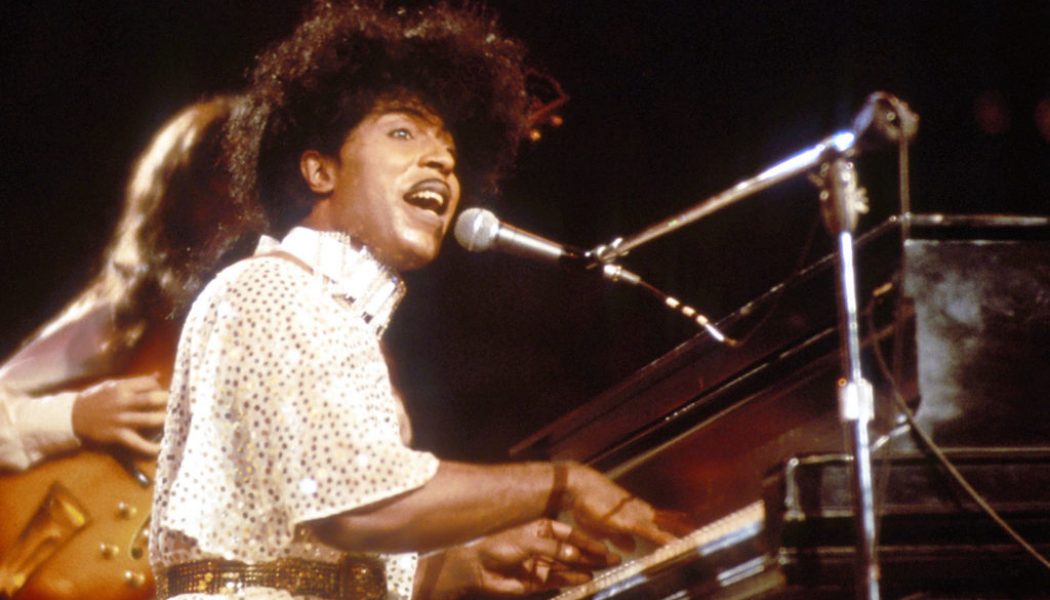
The late star scored over two dozen songs beginning in the ’50s.
Little Richard was one of the most influential pioneers of modern music, shaping the evolution of rock and R&B and charting legendary songs on Billboard‘s charts.
The icon, born Richard Penniman on Dec. 5, 1932, in Macon, Georgia, died Saturday morning (May 9) at age 87.
The singer, songwriter and pianist sent over two dozen songs onto Billboard‘s charts, with his most of his beloved hits having predated the Billboard Hot 100, which began on Aug. 4, 1958. (Prior to the Hot 100’s inception, Billboard published various charts ranking store sales, radio airplay and jukebox selections).
[embedded content]
He first debuted on a Billboard chart in November 1955 , when “Tutti Frutti” debuted at No. 12 on the Best Sellers in Stores tally. It later reached No. 17 on the Most Played in Juke Boxes tally in 1956. He wrote the song with Dorothy LaBostrie; produced by Robert Blackwell, who also produced for the likes of Ray Charles, Sam Cooke and Quincy Jones, it was honored with a Grammy Hall of Fame Award for its significance in launching Little Richard’s career. In 2010, it was added to the U.S. Library of Congress’s National Recording Registry.
As “Tutti Frutti” began to grow in popularity, Billboard reviewed the song as “A cleverly styled novelty with nonsense words delivered rapid-fire” in the October 29, 1955 issue.
He followed it up with “Long Tall Sally,” which hit No. 6 on the Best Sellers in Stores ranking in 1956 and likewise received a Grammy Hall of Fame Award.
Prior to the Hot 100’s inception, Little Richard also achieved top 10 hits with “Jenny, Jenny” and “Keep a Knockin’,” both in 1957, and “Good Golly, Miss Molly,” in 1958.
[embedded content]
After the Hot 100 began, Little Richard charted seven entries on the chart, reaching a No. 41 best with his first, “Baby Face,” in 1958. He sent songs onto the ranking in the ’50s, ’60s, ’70s and ’80s, through the No. 42-peaking “Great Gosh A’Mighty,” from the hit film Down and Out in Beverly Hills, in 1986.
Here’s a look at all seven of Richard’s entries on the Hot 100, sorted by peak position:
Peak Position, Title, Peak Date
No. 41, “Baby Face,” Oct. 27, 1958
No. 42, “Great Gosh A’Mighty (Down & Out In Bev. Hills Theme),” April 12, 1986
No. 47, “Freedom Blues,” July 11, 1970
No. 82, “Bama Lama Bama Loo,” Aug. 8, 1964
No. 85, “Greenwood Mississippi,” Sept. 12, 1970
No. 92, “I Don’t Know What You’ve Got But It’s Got Me – Part 1,” Nov. 27, 1965
No. 95, “Kansas City (Hey-Hey-Hey-Hey),” May 18, 1959
Little Richard’s albums have earned a combined 1 million total equivalent album units in the U.S. dating to the inception of Nielsen Music/MRC Data in 1991, and his entire song catalog has drawn logged 173.4 million on-demand U.S. streams.
Among Little Richard’s other chart contributions, he provided backing vocals on Bachman-Turner Overdrive’s “Take It Like a Man,” which reached No. 33 on the Hot 100 in 1976, and he joined the all-star charity single “Voices That Care,” which rose to No. 11 in 1991. Extending his legacy to yet newer music fans, Fergie sampled his 1957 hit “The Girl Can’t Help It” on her single “Clumsy,” which reached No. 5 on the Hot 100 in 2007.









